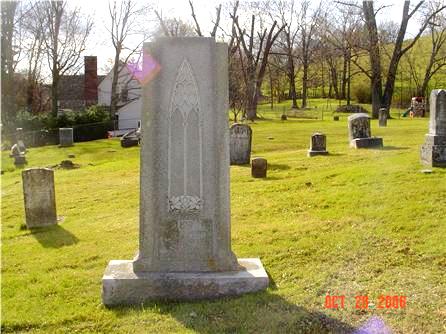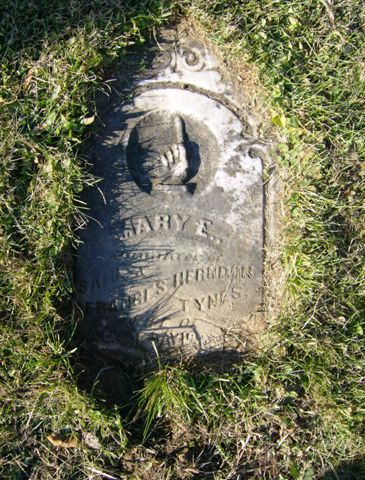|
Molly Tynes
Did she or didn’t she? SHE DID!
By
Janice Busic
For over 120 years, the story of Mary Elizabeth “Molly” Tynes has lain unnoticed and unrecognized beyond the mountains and smoky “hollers” of southwest Virginia. Part of the reason the story has not been portrayed in film and grandiose publications was because Molly herself did not see her action as anything less than expected. Like so many strong, southern women of her day, Molly saw what needed to be done and she did it.
According to local legend, as written about in numerous local newspapers and historical society newsletters, Molly Tynes was instrumental in saving the town of Wytheville and the Virginia and Tennessee Railroad tracks leading from Saltville into the Valley of Virginia. Molly lived with her father and invalid mother near the town of Tazewell, VA.
Mary Elizabeth Tynes had attended Hollins College but had moved back home during the war to help her ailing and elderly parents. Her brother, Captain Achilles J. Tynes, was serving in the Confederate Army.
On July 13, 1863, Col. J.T. Toland of the 34th Ohio Infantry with 1000 Union soldiers left Huntington, WV and headed toward Wytheville with the intention of destroying the train tracks. Destruction of the tracks would stop lead, salt petre, and salt from reaching Lee’s army and other Confederate units throughout Virginia. When the Union troops stopped to camp for the night near the Tynes farm, Molly’s father, Samuel Tynes, learned of their plans. The Union encampment was near what is now known as Ben Bolt and is currently owned by local pharmacist, historian, and author, Scott Cole. Since Molly was the most able-bodied person in the Tynes household, she mounted her horse, Fashion, and rode out to warn her neighbors and the residents of Wytheville that the Union army was coming. Some say she waved her bonnet and shouted the warning as she rode through the mountains.
Longfellow never wrote a poem about Molly as he did about Paul Revere. There were no newspapers headlines on the following day to record Molly’s brave ride. Nonetheless, very few children who grew up in or near Tazewell County did not hear the story of Molly Tynes and her courageous ride. Most people knew someone, or had a family member who remembered when Molly made her ride. Oral history does record what written words may not. Grandparents often began the story with, “I remember when ...” or “My Momma told me about the time ...” One example is the young boy who was standing in the door of the modest family home when an apparition riding a horse flew by the cabin door, yelling like a banshee. The boy who heard the words, “The Yankees are coming, tell everyone the Yankees are coming!” grew up to be the respected physician, Dr. Caleb Thompson. Dr. Thompson enjoyed telling about his childhood experience.
These oral accounts, passed down from one generation to the next cannot be discounted. No doubt, the story has been embellished as it was told and re-told but the basic facts remain the same. When the highway department erected a marker on Gratton Road recognizing Molly Tynes and her historic ride a written record was kept of correspondences between the Tynes family, the Library of Virginia and the Virginia Department of Highways. Copies of these letters are kept in the Tazewell County Public Library and the Historic Crab Orchard Museum in Tazewell.
Jeffrey Weaver has written numerous books on the War Between the States. Mr. Weaver is well respected in the world of historical researchers. He believes that Molly did not ride to Wytheville but instead rode to Saltville where the message was sent by telegraph to Wytheville. Either way, the town of Wytheville did receive word prior to the arrival of the Union army. This is shown in the military accounts of the battle. A mail train was taken in Dublin in an attempt to move Confederate soldiers and their equipment to Wytheville in time to defend the town.
When Union troops approached town, a group of armed, old man and young boys met them. As they exchanged gunfire, more gunfire came from rooftops and windows as others joined in the surprise attack. The result was that the Union army was turned back and the town and the railway were saved. Molly’s brother, A.J. Tynes, in an article written for The Confederate Veteran in 1910, wrote the earliest written record that credits this warning to Molly Tynes.
While researching this article, I went to the Jeffersonville Cemetery in Tazewell where Molly Tynes’ grave is marked. One author has questioned whether Molly was even returned to Tazewell County for interment. I had located a dowser, Darrell Lowe, who came to the cemetery and using metal rods dowsed the grave. He states that there is indeed an adult female buried in the grave. Molly lies buried beside her mother. Her father’s grave is beside the grave of her mother. Interestingly, as we prepared to leave the cemetery I lingered behind to say a private goodbye to Molly, whom I have gotten to know quiet well. Turning to leave, I dropped my camera lens. As I picked it up from the grass, my fingernails scraped against something solid just beneath the surface. I pulled a piece of sod back and discovered the original stone that had been replaced when the new marker was erected.
The William Watts Chapter of the United Daughters of the Confederacy erected the large memorial marker, recognizing Molly Tynes. Engraved on the back of the monument are the words that tell the story. “This monument honoring the courage of Molly Tynes who on July 17 and 18, 1863 rode horseback alone more than 40 miles across mountains at night to warn Wytheville of Union raiders, enabling the Confederate army to defeat them saving the railroad, lead and salt mines.”
 
Images and content reproduced with permission of the author.
Copyright © November 30, 2006, Janice Busic
All Rights Reserved.
| |